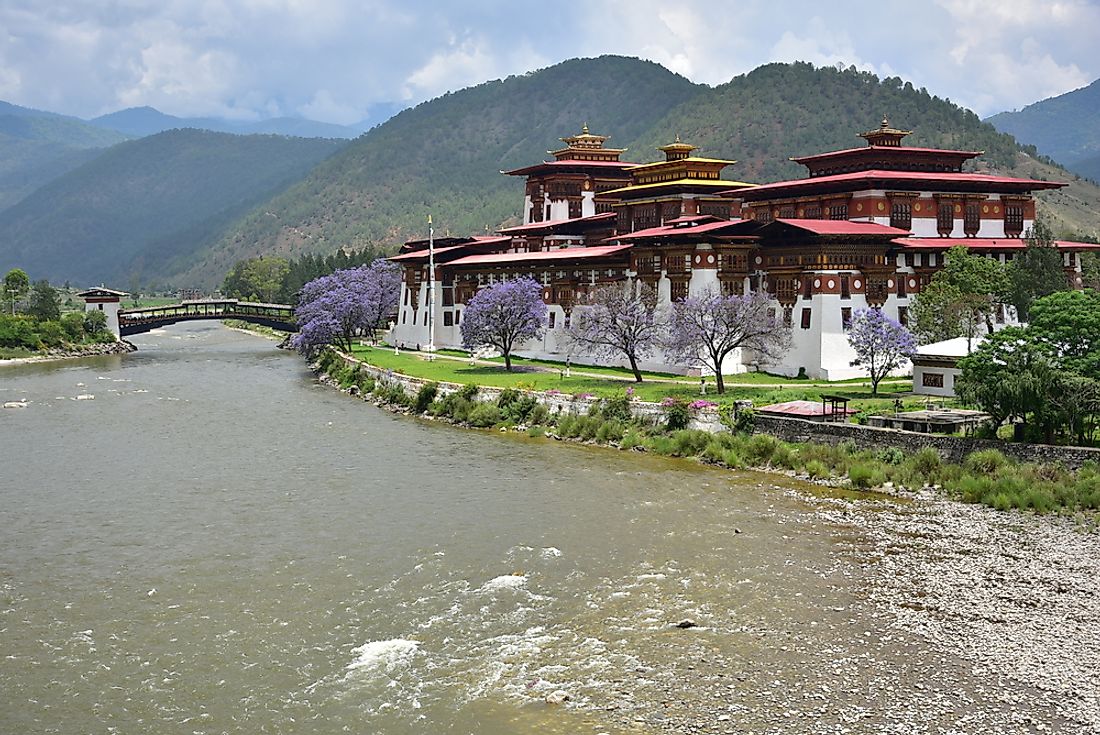Religious Beliefs In Bhutan

The landlocked Himalayan country of Bhutan is famous for its love of nature. The beautiful nation occupies an area of 38,394 square km and hosts a population of 797,765 people. It is the world’s only carbon-negative country.
Religions Practiced In Bhutan
Vajrayana Buddhism is the nation's state religion. The religion plays an integral role in the lives of the Bhutanese people. About 75% of the population comprises of Buddhists. Hindus account for most of the remaining 25% of the country’s population. A small percentage of the population practices animism or combine Buddhism with some indigenous beliefs.
The Largest Religion In Bhutan
Buddhism in Bhutan serves as an identity for the people of the country. Although the Buddhism practiced in the country traces its origin to that practiced in Tibet, the present-day ceremonies, monastic organizations, and other aspects of the Buddhism practiced in Bhutan are significantly different from that practiced in Tibet. Buddhist monasteries and convents flourish in Bhutan and are supported by the ruling royal family in the country. The government allows annual subsidies to the monks and nuns residing in Bhutan.
Hinduism In Bhutan
Most of the country’s Hindus reside in southern Bhutan and are mainly from the ethnic Lhotshampa community. They number around 200,000 individuals. Bhutanese Hindus include Vaishnavites, Shaivaites, and believers of other sects of Hinduism. Dashain is the main festival celebrated by the Hindus of the country. It is recognized as a public holiday in the country, the only Hindu festival to be declared a holiday in the country.
Other Religions Practiced In Bhutan
Christianity was first introduced in Bhutan in the 17th century by missionaries from Portugal but failed to attract the devout followers of Buddhism and Hinduism residing in the country. Today, Christians are present in Bhutan in very small numbers and most of them belong to the Nepalese ethnic group. Bon is the animist and shamanistic belief system indigenous to the country. It existed prior to the arrival of Buddhism and focuses on the worship of nature. Today, many Buddhists follow a form of syncretic religion by integrating the Bon and Buddhist practices. Only a very small population exclusively adhere to Bon beliefs. About 0.2% of the population of the country practice Islam.
Religious Tolerance In Bhutan
The law of Bhutan allows its citizens the freedom to practice their own religions. The government also upholds this right through its various policy while at the same time also ensures that Buddhist values are revered. The citizens of Bhutan are peace loving people who exhibit great tolerance towards the religion of others. No reports of violence or forced conversions thus exist in the country.
Religious Beliefs In Bhutan
| Rank | Religion | Population (%) |
|---|---|---|
| 1 | Buddhism | 75 |
| 2 | Hinduism | 25 |











